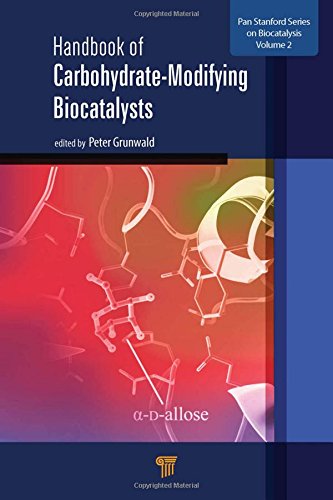

Most ebook files are in PDF format, so you can easily read them using various software such as Foxit Reader or directly on the Google Chrome browser.
Some ebook files are released by publishers in other formats such as .awz, .mobi, .epub, .fb2, etc. You may need to install specific software to read these formats on mobile/PC, such as Calibre.
Please read the tutorial at this link: https://ebookbell.com/faq
We offer FREE conversion to the popular formats you request; however, this may take some time. Therefore, right after payment, please email us, and we will try to provide the service as quickly as possible.
For some exceptional file formats or broken links (if any), please refrain from opening any disputes. Instead, email us first, and we will try to assist within a maximum of 6 hours.
EbookBell Team

0.0
0 reviewsThis book provides an actual overview of the structure, function, and application of carbohydrate-modifying biocatalysts. Carbohydrates have been disregarded for a long time by the scientific community, mainly due to their complex structure. Meanwhile, the situation changed with increasing knowledge about the key role carbohydrates play in biological processes such as recognition, signal transduction, immune responses, and others. An outcome of research activities in glycoscience is the development of several new pharmaceuticals against serious diseases such as malaria, cancer, and various storage diseases. Furthermore, the employment of carbohydrate-modifying biocatalysts―enzymes as well as microorganisms―will contribute significantly to the development of environmentally friendly processes boosting a shift of the chemical industry from petroleum- to bio-based production of chemicals from renewable resources.
The updated content of the second edition of this book has been extended by discussing the current state of the art of using recombinantly expressed carbohydrate-modifying biocatalysts and the synthesis of minicellulosomes in connection with consolidated bioprocessing of lignocellulosic material. Furthermore, a synthetic biology approach for using DAHP-dependent aldolases to catalyze asymmetric aldol reactions is presented.